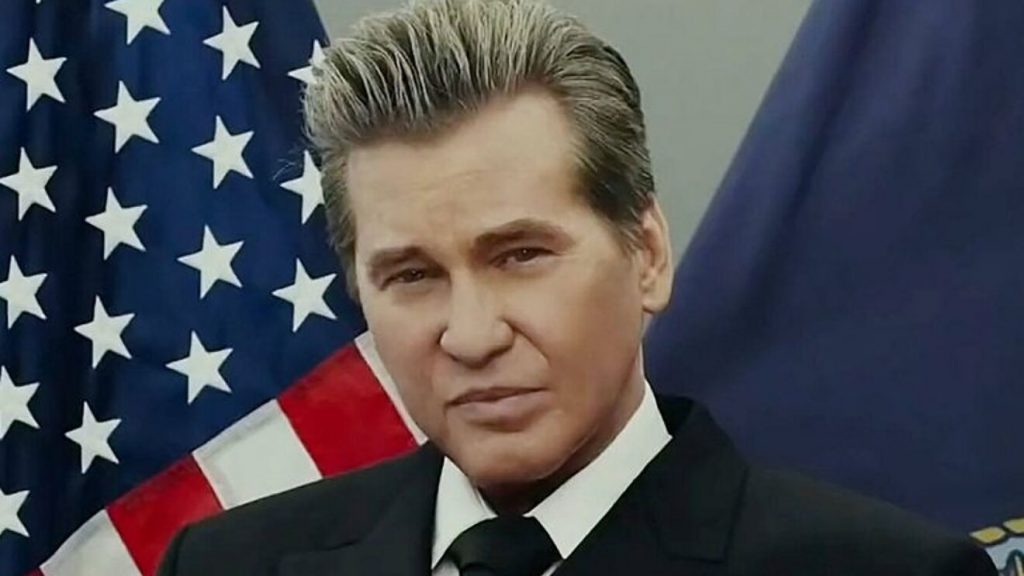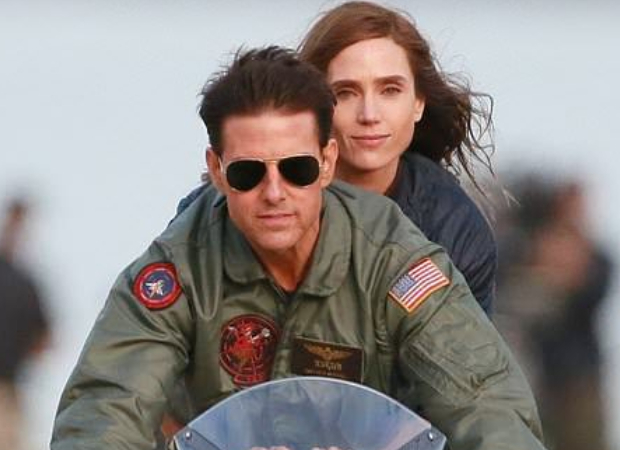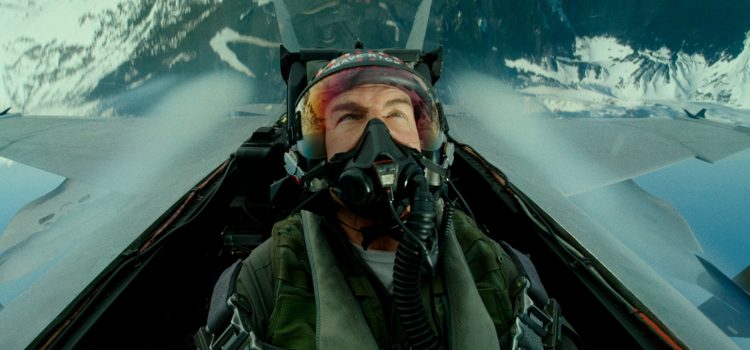By Alex McPherson
Director Joseph Kosinski’s “Top Gun: Maverick” surpasses the 1986 original to soar among 2022’s most satisfying efforts thus far.
Taking place over three decades later, viewers are reunited with Navy aviator Pete “Maverick” Mitchell, who has since avoided promotion to keep flying as a test pilot. Continuing to mourn and feel guilt over the death of his best friend, Goose (Anthony Edwards), there’s an air of melancholy surrounding Maverick, but his penchant for rebelliousness continues in full force.
Rear Admiral Chester “Hammer” Cain (a scenery-chewing Ed Harris) informs Maverick that drones will soon replace flesh-and-blood pilots. Maverick, trying to once again prove himself and save his program, pushes a prototype jet beyond Mach-10, becoming the fastest man alive before plummeting back to the land of mere mortals in a violent fireball. Somehow he emerges to live, and fly, another day.
Admiral Tom “Iceman” Kazansky (Val Kilmer, truly impactful in his short screen-time) saves Maverick from being permanently grounded and requests his return to the Top Gun school in San Diego to train a new batch of aviators for a “New Hope”-esque bombing run against an unnamed foreign enemy.
The group, mostly simple characterizations, includes a badass woman pilot “Phoenix” (Monica Barbaro), a soft-spoken lad with the call sign “Bob” (Lewis Pullman), and a macho show-off named “Hangman” (Glen Powell), echoing a young “Iceman,” among others. Maverick is constantly watched over by Admiral Beau “Cyclone” Simpson (Jon Hamm), who’s none too pleased with Maverick’s unconventional methods.

Crucially, however, Goose’s son, “Rooster” (Miles Teller, with a mustache channeling Goose’s), joins the team, carrying palpable resentment towards Maverick, whom he deems responsible for his father’s untimely demise. Maverick reunites with a long-ago lover, the beautiful Penny (Jennifer Connelly) — with nary a mention of Kelly McGillis’s Charlie — and gradually begins to recognize the appeal of leading a more “normal” existence. Tensions are high, the stakes are real, and Maverick must confront the ghosts of his past to make it out alive and reach some semblance of inner peace before he signs off for good.
Quite unexpectedly, there’s far more thematic meat to chew in “Top Gun: Maverick” than viewers might expect. But those looking for a pure shot of cinematic adrenaline won’t be disappointed either. Kosinski achieves a near-perfect balance between tongue-in-cheek popcorn thrills, nostalgic callbacks, and deeper nuance — extending beyond Maverick to comment on Cruise’s own acting career, as well the state of big-budget filmmaking today.
“Top Gun: Maverick” features one of Cruise’s all-time best performances, capturing both the character’s courageousness and newfound fearfulness at his position in the world and with the treacherous mission he’s preparing to guide. The way he carries himself throughout his old hunting grounds lacks the upbeat bounce it used to — replaced by an awareness of his own age and mortality, the sense that this once-invincible daredevil can’t be around forever. Indeed, neither can Cruise as an actor: one of the last movie stars who literally risks his life for our enjoyment.
His conversations with Penny and Iceman, especially the latter, reveal a vulnerable soul unable to forgive himself and fully accept the passage of time — an unexpected narrative choice for a character originally drenched in macho masculinity. He’s still charming and capable of copious one-liners, but the added depth is much welcomed.

Maverick’s conflict with Rooster also hangs over the film, as Maverick deeply fears losing him to the same fate as his father. Teller’s performance conveys Rooster’s stubbornness, contempt, and own self-doubt. His arc, while predictable, hits home with force in the film’s absolutely electrifying final act.
Speaking of which, “Top Gun: Maverick” features some of the most mind-blowing set-pieces I’ve ever witnessed. Reportedly filmed in real planes with minimal VFX, cinematographer Claudio Miranda puts viewers right in the cockpit with the pilots, immersing us into all the high-flying maneuvers to staggering effect.
At one point, as Cruise flies straight upwards, we practically feel the G-forces along with him, our ears bombarded by thunderous engines. I cannot overstate just how incredible these sequences are, and how impressive it is that they’re filmed coherently. Whether or not stunt work like this can ever be recreated again — if we ever get away from CGI-infested superhero flicks — the craziness on display makes “Top Gun: Maverick” a spectacle that must be viewed on the big screen, preferably in IMAX. Similarly, the score by Lorne Balfe, Harold Faltermeyer, Hans Zimmer, and Lady Gaga deserves to be blared as loudly as possible.
Yes, Kosinski’s film certainly has its cheesy, soap-opera-esque flourishes — it is a sequel to “Top Gun” after all — and the film’s militarism remains blatant, albeit neutered this time around. Where things wrap up isn’t exactly surprising, and the sweaty, crimson-hued world seems (intentionally) separated from gritty reality.
Regardless, this is a pure, balls-to-the-wall action film that contains thought-provoking undercurrents beneath its crowd-pleasing sheen. It’s an experience that I’ll be revisiting frequently and one that reminds me of the power of the summer blockbuster.

“Top Gun: Maverick” is a 2022 action-adventure directed by Joseph Kosinski and starring Tom Cruise, Miles Teller, Jennifer Connelly, Jon Hamm, Ed Harris, Glen Powell, Lewis Pullman, Monica Barbero and Val Kilmer. It is rated PG-13 for sequences of intense action, and some strong language, and runs 2 hours, 10 minutes. The movie was released in theaters and IMAX on May 27. Alex’s Grade: A-.
Alex McPherson is an unabashed pop culture nerd and a member of the St. Louis Film Critics Association.

